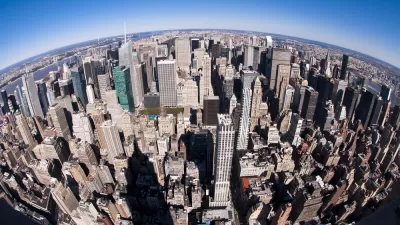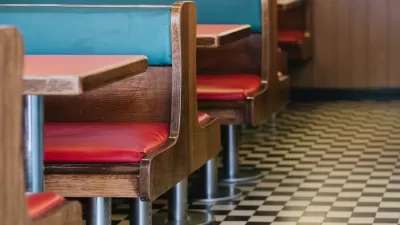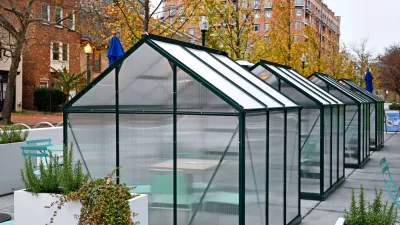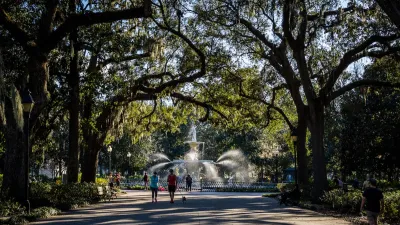The results of a survey commissioned by Sasaki Associates reveal key insights into what makes cities great for those who love them, as well as where planners and urban designers should focus their efforts in improving the urban experience.

Jared Green provides an overview of the What Makes A City Great? survey [pdf], including an introduction of the survey's methodology (i.e., the survey polled "1,000 urbanites in San Francisco, Chicago, Austin, New York, Boston, and Washington, D.C. what they love most about their city), interdisciplinary research team (i.e., "the team who put together the survey is comprised of a planner, landscape architect...and an architect") and key findings on highlighted areas including:
- What do urbanites love most about their cities?
- Where do urbanites' favorite experiences happen
- What makes a city's buildings iconic?
- What do urbanites like least about getting around?
Green, writing for the ASLA's The Dirt, also makes the case for the importance of the findings: "Surveys like Sasaki’s are important. We need to attract as many people as possible to cities, because urban life is central to a more sustainable future."
Anthony Flint also wrote about the results of the survey in an earlier post for CityLab, focusing on the importance of restaurants to positive city experiences, as revealed by the data.
"Eighty-two percent of urbanites appreciate their city’s culinary offerings, and a new restaurant is the top reason nearly half of those surveyed would venture out to explore different parts of their city. The majority of city residents also consider food and restaurants to be the most outstanding aspect of cities they love to visit," writes Flint.
For more entre to the survey, Sasaki Associates also boiled down the study's key findings into an infographic [pdf], which you can also find on a blog post written by the firm.
FULL STORY: New Survey: What Makes a City Great?

Alabama: Trump Terminates Settlements for Black Communities Harmed By Raw Sewage
Trump deemed the landmark civil rights agreement “illegal DEI and environmental justice policy.”

Planetizen Federal Action Tracker
A weekly monitor of how Trump’s orders and actions are impacting planners and planning in America.

The 120 Year Old Tiny Home Villages That Sheltered San Francisco’s Earthquake Refugees
More than a century ago, San Francisco mobilized to house thousands of residents displaced by the 1906 earthquake. Could their strategy offer a model for the present?

In Both Crashes and Crime, Public Transportation is Far Safer than Driving
Contrary to popular assumptions, public transportation has far lower crash and crime rates than automobile travel. For safer communities, improve and encourage transit travel.

Report: Zoning Reforms Should Complement Nashville’s Ambitious Transit Plan
Without reform, restrictive zoning codes will limit the impact of the city’s planned transit expansion and could exclude some of the residents who depend on transit the most.

Judge Orders Release of Frozen IRA, IIJA Funding
The decision is a victory for environmental groups who charged that freezing funds for critical infrastructure and disaster response programs caused “real and irreparable harm” to communities.
Urban Design for Planners 1: Software Tools
This six-course series explores essential urban design concepts using open source software and equips planners with the tools they need to participate fully in the urban design process.
Planning for Universal Design
Learn the tools for implementing Universal Design in planning regulations.
Clanton & Associates, Inc.
Jessamine County Fiscal Court
Institute for Housing and Urban Development Studies (IHS)
City of Grandview
Harvard GSD Executive Education
Toledo-Lucas County Plan Commissions
Salt Lake City
NYU Wagner Graduate School of Public Service





























